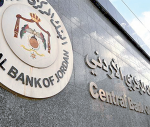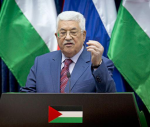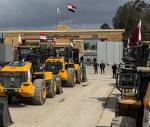You are here
Kyrgyzstan’s post-revolutionary crossroads
Nov 28,2020 - Last updated at Nov 28,2020
BISHKEK — After staging three revolutions in two decades, one could argue that the people of Kyrgyzstan have accumulated unique knowledge of how it is done. Then again, because new problems have emerged each time, there are clearly limits to what experience can offer.
Kyrgyzstan’s latest revolution began in a typical fashion. Following a parliamentary election on October 4, protesters and rioters took to the streets seeking to annul the result, triggering a full-scale political crisis. By October 6, demonstrators had occupied the White House, the government building that houses the president’s office and parliament. In the following days, a peaceful power struggle unfolded. In the end, the Central Election Commission annulled the election results, President Sooronbai Jeenbekov resigned, and Sadyr Japarov, a politician who had just been released from prison, became the acting president.
Meanwhile, as the country’s only remaining independent political body, the parliament had continued to work throughout the protests, enacting legislation to hold a presidential election and a vote on a new constitution on January 10, 2021. This reform was initiated by Japarov himself, prompting his opponents to accuse him of attempting to usurp power and divert the country from the path of democracy.
Japarov, now 51, began his political career in 2005, when he was elected to parliament. The government that was elected in 2010 prosecuted him, and he went into hiding abroad. When he returned, he was convicted and imprisoned. Both of his parents and his son died during his incarceration, elevating his status as a political martyr in the eyes of many Kyrgyz.
Japarov’s rise to power reflects not just his vivid biography, but also the determination of his activist base of supporters and the loyal MPs who backed him. For all the criticism that he is now receiving, there is no question that he played a central role in preventing the country from sliding into chaos during the critical days of the October revolution.
Many Kyrgyz view Japarov as a political outsider who can unite a fractured country and carry out necessary reforms. He has already announced a programme to fight corruption, curb the shadow economy and renew the political establishment with a younger generation of untainted professionals. If the upcoming vote on constitutional changes succeeds, it will be the tenth time that Kyrgyzstan has amended its constitution since it emerged from the Soviet yoke in 1991. There is a persistent myth in Kyrgyzstan that changing the constitution will make life suddenly better. But, of course, constitutional changes yield real-world results only when there is a deep public understanding and acceptance of constitutionalism.
Given the speed of events in recent weeks, the international community fears further de-stabilisation. But the Kyrgyz people recognise and appreciate the fact that they have barely avoided falling into the political abyss. During the revolution, law-enforcement agencies seemed paralyzed, unable to ensure the security of either state institutions or private property. The only force that proved capable of maintaining a degree of legality was the self-organised “people’s guards” who have cut their teeth during past periods of unrest.
The official law-enforcement agencies were hampered by their own leaders’ incompetence, corruption and lack of professionalism. During the days of rioting, many division chiefs, those with a rank above colonel, simply vanished, no longer even answering calls from their subordinates. The whereabouts of the (former) ministers of internal affairs and national security are still unknown; it is safe to assume that they are on the run. State institutions and civil society are once again functioning completely on their own.
It is worth noting that the Kyrgyz state budget is around $2 billion, almost all of which is allocated for “protected items” such as salaries and pensions, whereas annual remittances, mainly from migrant workers in Russia, exceed $3 billion, accounting for around 30 per cent of GDP. The gap between private and public incomes is one of the main sources of systemic corruption in the country. Kyrgyz do not expect anything from the state, and ask only that it not take too much from them in the form of bribes and kickbacks. Indeed, the revolutionary impulse stems not from poverty and unemployment but from perceived injustice.
Since the earliest days of Kyrgyzstan’s independence, public trust in the government has been repeatedly undermined by systemic corruption, falsified election results, and the state’s reliance on informal institutions, including criminal entities and actors. Unlike in other countries with similar problems, corrupt regimes here are overthrown quickly. But the Kyrgyz people now must learn to build as well as they can destroy. Failing that, they will always be risking another plunge into political chaos, and, with it, the threat of state failure.
Djoomart Otorbaev was prime minister of Kyrgyzstan in 2014-15. Copyright: Project Syndicate, 2020. www.project-syndicate.org















